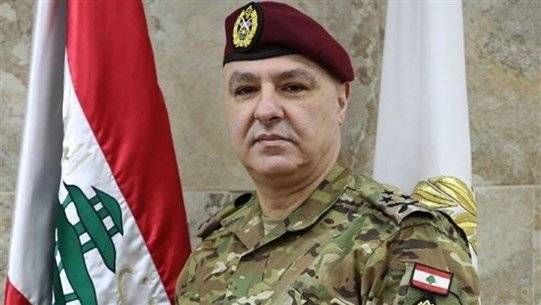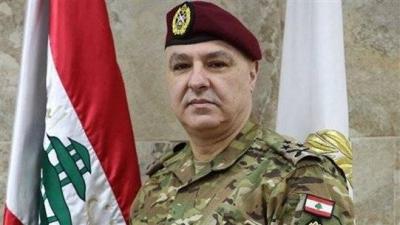Contrary to what was conveyed about him in his private meetings and discussions, regarding his readiness to call session after session for the election of a new president beginning September, Speaker of Parliament Nabih Berri stated that he will not convene a session to elect a new president for the country until the Parliament approves reforms that represent preconditions for the rescue program set by the International Monetary Fund. What has changed for Berri to modify his position or what was conveyed about him, and why is this linkage to the approval of reforms, what are these reforms, and can they be completed before the presidential elections?
During Berri's recent meeting with some journalists, he stated that the Parliament should work on passing reform laws in the current month of August, as the need for these measures is urgent. It is known that Lebanon reached a staff-level agreement with the International Monetary Fund in April regarding a rescue program worth $3 billion, but the complete agreement is conditional on the approval of reform laws, including the law for restructuring banks, banking secrecy, the 2022 budget, the economic recovery plan, and the capital control law, which is still under extensive discussions through sessions held by Deputy Speaker Elias Bou Saab with several experts and stakeholders.
While Berri mentioned the approval of the most challenging of these laws during the last session, namely the amendment of the banking secrecy law, he indicated the possibility of scheduling a session for the budget to discuss and approve it next week if the government provides the exchange rate that we have asked for several times but has not yet been delivered.
Berri explains the connection between the approval of reforms and the election of the president by emphasizing the necessity of meeting the next president in a new atmosphere that prepares the ground for starting the reform process smoothly. He also asserts that it is not only the Speaker's duty to call for the session but also, alongside completing the reform laws, to establish a communication mechanism among the parties to agree on the next president.
When asked about the need to amend the constitution if Army Commander General Joseph Aoun is to be elected president, or if the experience of electing Michel Sleiman could repeat without a constitutional amendment, he insists that what is required is "the application of the constitution." He stated that what happened with the experience of General Michel Sleiman was a circumvention of the deadline (the six-month period that requires the resignation of the army commander before the election, which lapsed due to the presidential vacancy following President Emile Lahoud's term), and thus if any Maronite nominates himself for the presidency, he has the right to do so.
**Election of Sleiman and the Fatwa of Articles 73 and 74 of the Constitution**
President Michel Sleiman was elected in a session held on May 25, 2008, amid notable Arab and international presence, with 118 MPs from both the majority and opposition voting in favor of his election as president versus 6 blank votes. At that time, MPs Boutros Harb, Hussein Husseini, Nayla Mouawad, and George Adwan began the voting session by announcing their support for Sleiman's election but expressed reservations about not making the required constitutional amendment. In response, Berri stated that Sleiman's election was constitutional according to Article 74 relevant to this procedure.
The justification for resorting to Article 74 was that Article 73 speaks about the election of the president within the constitutional deadline that precedes the end of the predecessor's term, at least one month and no more than two months, during which the council meets, while Article 74 deals with the vacancy of the presidency due to death, resignation, or any other reason, necessitating an immediate meeting without even a call from the Speaker.
The set dates that lasted over 20 calls began with the first call issued by Berri to MPs based on the provisions of Article 73, yet the Parliament resorted to Article 74 to evade amending Article 49. It is well-known that electing the army commander to the presidency requires amending Article 49 of the constitution which prohibits first-class employees from being elected to this position. It is known that constitutional amendments must go through the government, either by a legal proposal from ten MPs approved by the Parliament with the constitutional qualified majority of two-thirds to be referred to the Council of Ministers, which is supposed to approve it with two-thirds, and send it back to Parliament, or a law proposal approved by two-thirds of the Council of Ministers to the Parliament.
In both cases, Berri rejected the matter because the amendment would pass through a government he considered at the time "non-constitutional" due to the resignation of the Shiite ministers, including Minister Yaacoub Sarraf (the government of President Fouad Siniora). Berri rejected all "fatwas" that would pass through the government, including the "fatwa" given by President Hussein Husseini to "suspend" the application of one of the paragraphs of Article 49 after it became clear that the amendment or suspension should go through the government.
The late MP and Chairman of the Administration and Justice Committee at the time, Robert Ghanem, had prepared a proposal to amend Article 49 of the constitution to allow the army commander to be elected president by the end of 2007, but it did not take its legal and constitutional course. Berri relied on a "fatwa" established by MP Bahij Tabara in Article 74 of the constitution, which states: "If the presidency becomes vacant due to the death of the president or his resignation or any other reason, the council shall meet immediately by law to elect a successor, and if it is agreed that the vacancy occurs while the Parliament is dissolved, the electoral bodies shall be summoned without delay, and the council shall meet by law once the electoral works are completed."
Tabara's proposal summarizes the application of this article, allowing for the election of a president without going through a mechanism for constitutional amendment. Berri has previously stated multiple times that the quorum for opening the election is two-thirds; otherwise, there will be no opening or election. So, will the situation of General Joseph Aoun be the same as that of General Michel Sleiman, and will the election take place without amending Article 49 of the constitution? What about the current government's status as a caretaker government? Will the vacuum, if it occurs, extend to match the vacuum period preceding General Michel Sleiman's election or that preceding General Michel Aoun's election?
In conclusion, there does not seem to be any intention to apply the constitution and adhere to it in major obligations, including the obligation to elect a president. Often, we arrive at the outcome and impose it on the institutions, and democratic mechanisms are not applied until after reaching a political agreement outside constitutional frameworks; thus, constitutional mechanisms come to embrace the political agreement. In Doha, the agreement was made outside Lebanon and then imposed on constitutional institutions, and the game of obstruction will lead to the suspension of constitutional work, consequently leading to the collapse of the country.




